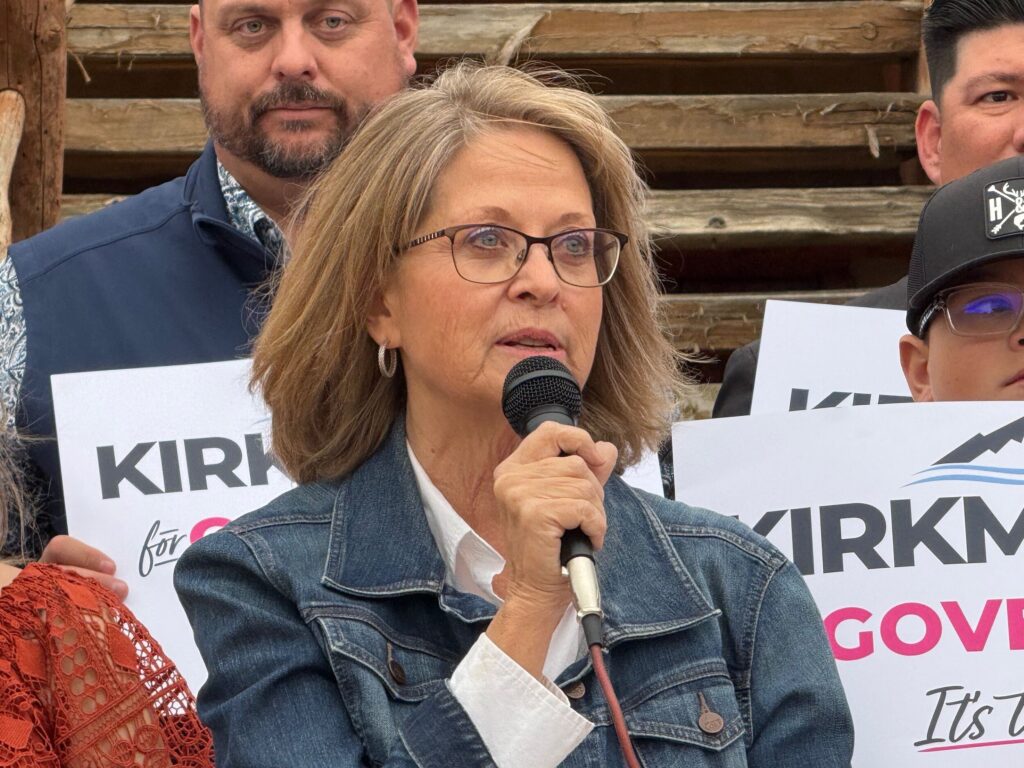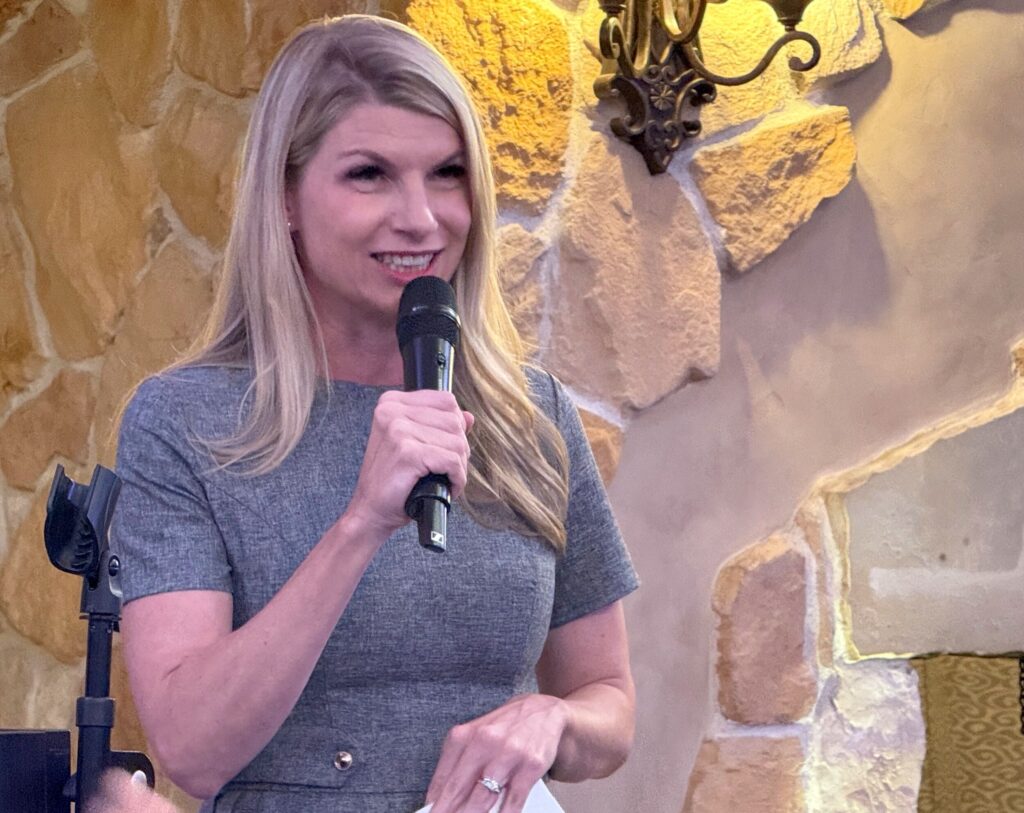ACLU, other organizations urge Gov Jared Polis to veto Colorado social media bill

A trio of organizations is urging Gov. Jared Polis to veto a proposal to impose several regulations on social media companies, which the legislation’s sponsors hope would encourage a crack down on users who violate their rules.
Senate Bill 086 would require social media companies to evaluate reports of policy violations within 72 hours. If a user is found to have violated the policy, the platform must remove that person or entity within 24 hours. It also requires social media companies to submit annual reports detailing documented policy violations and data on minors’ use of their platforms.
The measure — sponsored by Sens. Lisa Frizell, R-Castle Rock, Lindsey Daugherty, D-Arvada, and Reps. Andrew Boesenecker, D-Fort Collins, and Anthony Hartsook, R-Parker — has the unanimous support of all 23 district attorneys in the state, who argued that the measure is necessary to address the growing number of kids using social media to buy and sell illegal drugs.
“This bill would address a serious public safety concern that’s impacting Boulder County and communities throughout Colorado and across the country,” Boulder County District Attorney Michael Dougherty told Colorado Politics. “We have predators that are praying upon kids and teens through social media to sell drugs and guns, exchange sexually explicit material, and lure them into sexual offenses.”
While Senate Bill 086 passed through both chambers of the General Assembly with bipartisan support, Polis has made clear his concerns about its potential privacy and free speech implications.
“While we share the bill’s goal of protecting children online, we believe this legislation has fundamental flaws and would have unintended negative consequences,” Michael McReynolds of the Governor’s Office of Information Technology told legislators earlier this session.
In a statement, the governor’s office said Polis “wants to protect internet freedom while making Coloradans safer, but has serious concerns about the impact of this bill on freedom, innovation, and privacy.”
“He is not comfortable with the government forcing social media companies to act as law enforcement,” a spokesperson said.
During a press conference on Tuesday, advocates from the ACLU, Chamber of Progress, and ProgressNow Colorado wants the Polis to veto the measure.
“This bill isn’t about protecting kids, it’s about government overreach, and it would create a chilling effect on free speech, especially for Black, Latino, LGBT and low-income youths who utilize social media to build community, organize, and share their lived experiences,” said Kouri Marshall, director of state and local government relations for Chamber of Progress. “Our state government should not be mandating private entities.”
Anaya Robinson of the ACLU said the bill erodes the First Amendment rights of all social media users, not just kids.
“While we agree that a social media platform has the right to remove users for violating their policies, a government mandate to remove a user from a speech platform remains a major concern,” he said.
Robinson noted the 2017 Supreme Court case Packingham vs. North Carolina, in which the court struck down North Carolina’s law prohibiting convicted sex offenders from using social media, arguing that as the modern-day “public square,” First Amendment protections apply to social media platforms.
“If the Supreme Court holds that a state cannot limit access to social media for violating the law, allowing language into statute that limits access to social media for individuals who violate a private company’s policy is absolutely a bridge too far,” he said.
Hazel Gibson of ProgressNow said everyone wants to protect kids, but regulating social media platforms is not the way to do it.
“It’s a major concern that we have government stepping in and policing speech,” she said. “This bill actually gives tech companies more power; it actually makes them an extension of law enforcement. If we are already struggling with the power they have, I don’t think giving them more power is going to be the solution for those problems.”
Kids from “marginalized” communities are already “over-policed” in real life, and this bill would just expand that over-policing to the digital world, Gibson argued.
“We know that this bill will be used to target our most vulnerable communities,” she said. “I think that the end goal is to protect children, but we can’t do that while giving away our rights at the same time.”
If the bill were to become law, Marshall, Robinson and Gibson said a lawsuit is very likely, adding courts have already struck down similar measures in states like Arkansas, California, and Ohio.
With Colorado in a budgetary deficit of over $1 billion, passing legislation that is ripe for litigation is not a wise move, Gibson said.
“I don’t think we need to be using our very limited resources having these court rights that are likely to be constitutional and are going to be ruled that way,” she said.
The ease with which kids can access drugs through social media platforms is undoubtedly cause for concern, Marshall, Robinson and Gibson said.
However, imposing regulations on social media companies doesn’t get to the root of the problem, they argued.
Kids and parents need more digital literacy education, especially parents who may not be as tech-savvy as their kids regarding things like parental controls, they said.
“We often legislate solutions to problems without addressing the root causes of the problems,” said Robinson.
“This is not gonna change the problems, it’s just gonna move them to another area,” added Gibson. “I’m pretty sure that before social media existed, kids got access to drugs and other things.”
Drug use is a symptom of a problem, not the entire problem, Gibson said. She and Robinson argued that “harm reduction” — a broad concept that fundamentally accepts drug use as a reality in society and insists that the proper response is to “minimize its harmful effects rather than simply ignore or condemn them, as opposed to a tougher approach to crime by increasing penalties ” — is the best approach to addressing and avoiding drug addiction, not creating more crimes.
“We need to figure out what it is that people need to not move to drug use, especially with kids,” said Robinson.
During an earlier hearing, the parent of 16-year-old Avery Ping of Olympia, Washington, testified how, like many of his peers, the child used social media daily to stay connected with friends, keep tabs on celebrities and influencers, and watch videos. Last December, he used the photo messaging app Snapchat to purchase MDMA, also known as ecstasy or molly.
That choice ended up costing him his life.
Unbeknownst to Avery, the drugs he purchased were laced with fentanyl. According to Aaron Ping, Avery’s father, the man who sold his son the drugs was a well-known dealer among local teens. To Aaron’s horror, a drug task force had subpoenaed Snapchat just two months before Avery’s death, seeking records of the dealer’s account. The company took over a month to comply.
Social media makes buying drugs as easy as ordering food for delivery, Ping told the Colorado Senate Judiciary Committee last month.
Sponsors earlier argued the bill would address what they described as the harmful effects of social media to kids.
“Social media companies are profiting from Colorado youth, but unfortunately, they’re not adequately protecting them on the platforms,” said Sen. Lindsey Daugherty, D-Arvada, a sponsor of Senate Bill 086.
According to a Harvard study, social media platforms make more than $10 billion a year advertising to kids and teens, including ads for illegal drugs, weapons, and dangerous diet pills.
While these platforms have policies prohibiting illicit content, those policies are often not enforced, said Sen. Lisa Frizell, R-Castle Rock, co-sponsor of SB 086. She also said reporting users for selling drugs or weapons or engaging in cyberbullying is often fruitless.
“Despite being made aware time and time again by users that other users engage in all of these illegal activities that are harming and killing kids, these folks often remain on the platforms indefinitely because these platforms are unwilling to enforce their own rules,” Frizell said.











